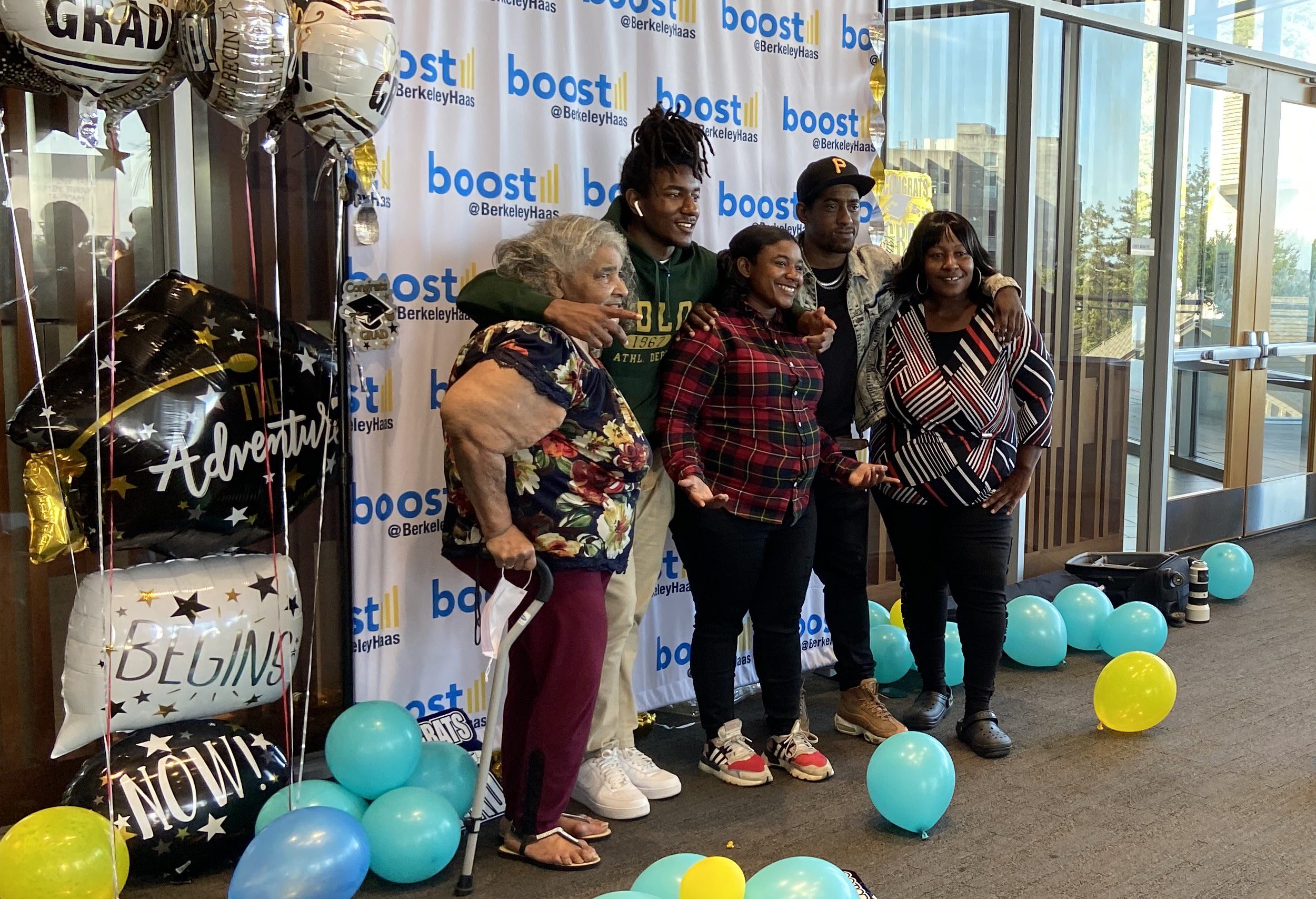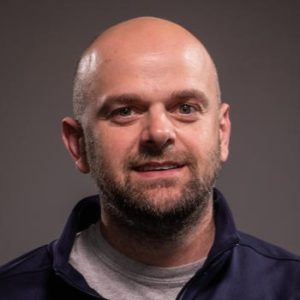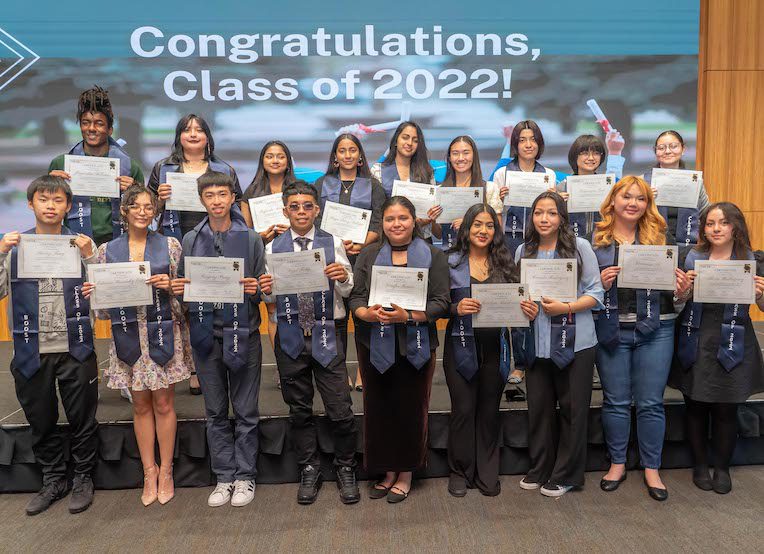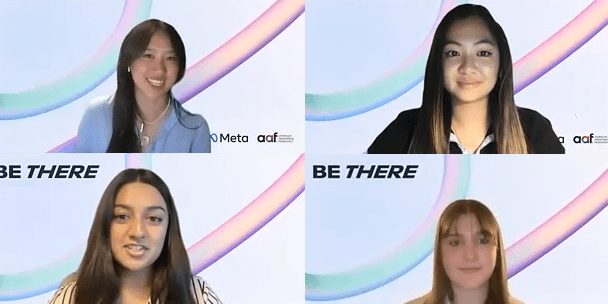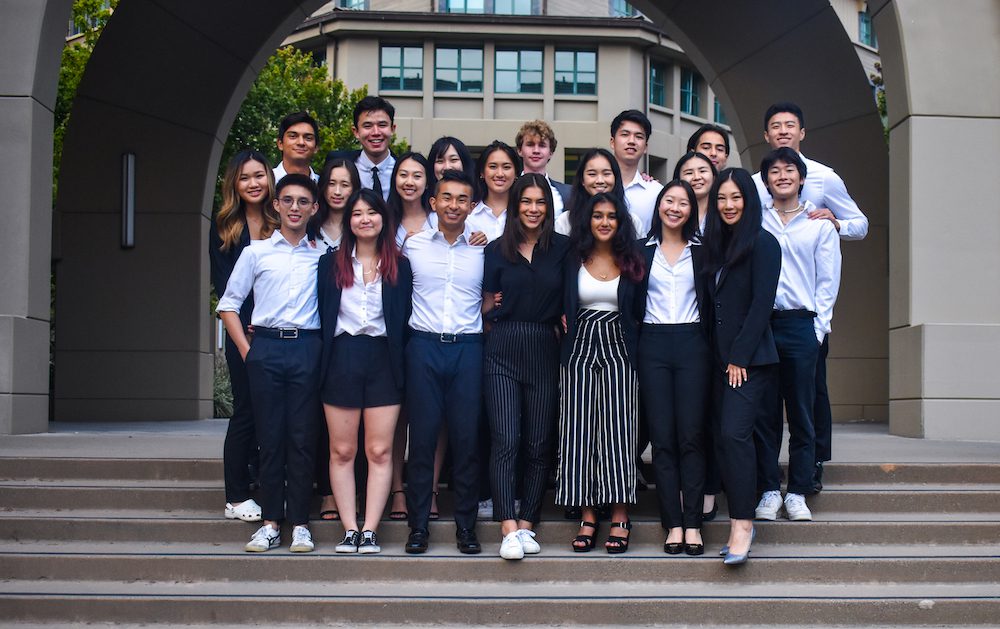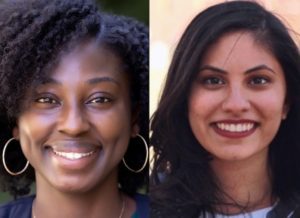Visa’s Chief Marketing Officer Frank Cooper III, BS 86, and Toast’s Chief Financial Officer Elena Gomez, BS 91, will serve as Berkeley Haas commencement speakers this May.
Commencement ceremonies will be held at the Greek Theatre, with the undergrads tossing caps on Tuesday, May 16, and the FTMBA and Evening & Weekend MBA students graduating together on Friday, May 19.
Cooper will speak at the combined Full-time and Evening & Weekend MBA commencement, and Gomez will speak at undergraduate commencement.
Frank Cooper III
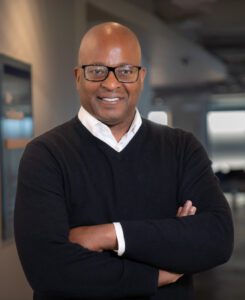
A branding and advertising leader, Cooper leads Visa’s marketing across all regions and functions, including brand, data and insights, social and digital platforms, content, and sponsorships. Cooper, recognized by Fast Company as one of the “100 Most Creative People in Business,” describes himself as “a marketer in the broadest sense: I seek to change things—change ways of thinking but more important to change behaviors.”
Prior to working at Visa, Cooper served as chief marketing officer at BlackRock, shaping the firm’s global brand and marketing strategy.
Cooper has also previously held C-suite positions as chief marketing and creative officer at Buzzfeed, and as PepsiCo’s chief marketing officer of global consumer engagement for more than 12 years. Cooper also served as former chairman of the American Advertising Federation and on the for-profit boards of Burlington Stores and Ogmento/Flyby Media.
He began his career as an entertainment lawyer and was a senior executive at Motown and Def Jam. He is a four-time recipient of Billboard’s “Power 100” and AdColor’s “Legend” award.
He began his career as an entertainment lawyer and was a senior executive at Motown and Def Jam. He is a four-time recipient of Billboard’s “Power 100” and AdColor’s “Legend” award.
He earned an undergraduate degree in business administration at UC Berkeley, and a JD from Harvard Law School, where he served as the Supreme Court Editor of The Harvard Law Review.
Elena Gomez
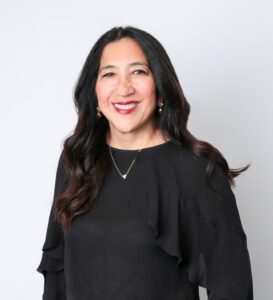 As chief financial officer at Boston-based Toast, Gomez oversees global finance, investor relations, and corporate development. Under her financial leadership, the cloud-based restaurant management software company launched its initial public offering in 2021.
As chief financial officer at Boston-based Toast, Gomez oversees global finance, investor relations, and corporate development. Under her financial leadership, the cloud-based restaurant management software company launched its initial public offering in 2021.
Prior to her position at Toast, Gomez served as the chief financial officer at Zendesk, where she grew the company’s market capitalization to more than $15 billion.
Throughout her 30-year career, Gomez has helped organizations scale through cycles of massive growth while leading in industries that have been transformed by digital transactions.
She has held financial leadership roles at Fortune 500 companies including Salesforce, Visa, and Charles Schwab.
Additionally, Gomez serves on the board of directors for Smartsheet and PagerDuty as audit committee chair. She was also named to the San Francisco Business TImes’ 2017 list of “Most Influential Women in Business.”
An advocate for corporate diversity, equity, and inclusion, she serves on the Founding Advisory Council of the Center for Gender, Equity & Leadership (EGAL) at Haas, as well as the board of the Boys & Girls Clubs of San Francisco.
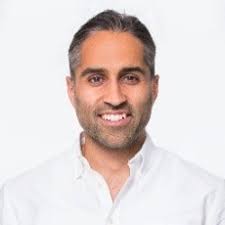 Karan Singh, BS 05, said his career purpose didn’t become clear until a life-changing event 13 years ago.
Karan Singh, BS 05, said his career purpose didn’t become clear until a life-changing event 13 years ago.